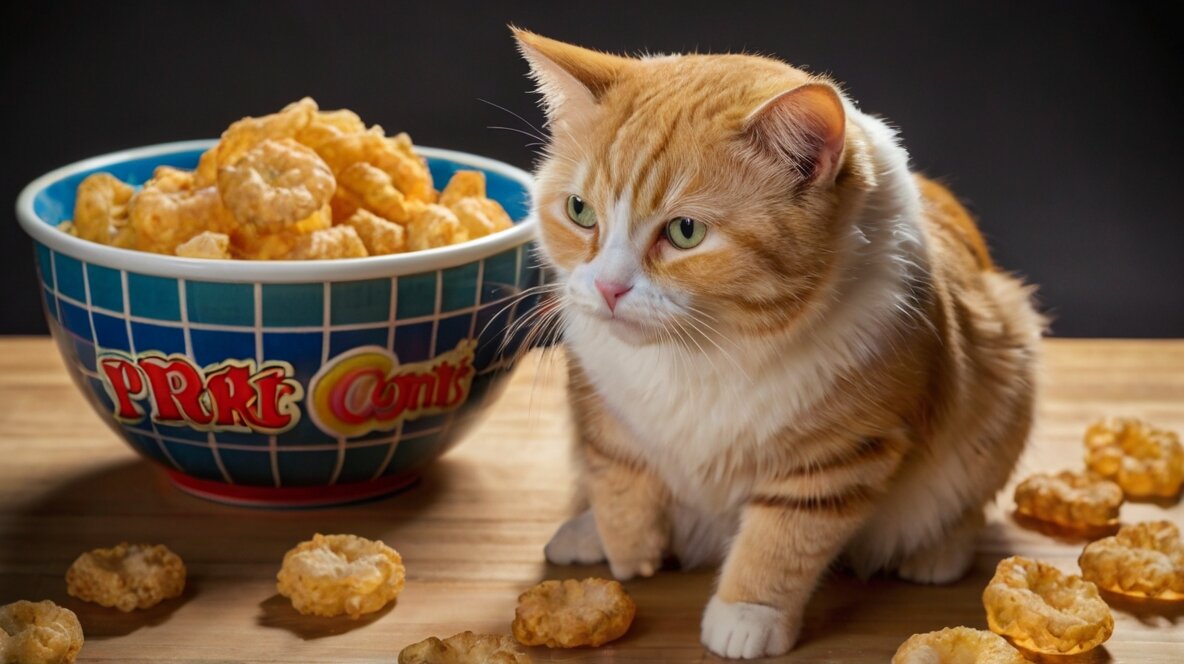Table of Contents
Fleas are more than just a nuisance; they can cause discomfort and health issues in your pets, including chinchillas. While flea infestations in chinchillas are relatively rare, they can still happen under certain circumstances. Knowing how to spot, treat, and prevent fleas from bothering your chinchilla is key to maintaining their well-being.
Let’s explore everything you need to know about flea infestations in chinchillas, from symptoms to treatment, and most importantly, prevention.
What Are Fleas and How Do They Affect Chinchillas?
The Basics of Flea Behavior
Fleas are small, wingless parasites that feed on the blood of mammals. These pests have an impressive ability to jump long distances, making it easy for them to spread between animals and throughout homes. Once they find a host, fleas bite into the skin to feed on blood, causing itching and irritation.
Fleas and Chinchilla Physiology
Chinchillas have dense fur that protects them from environmental threats, but it also makes it difficult for parasites like fleas to latch onto their skin. Fleas tend to prefer pets with thinner fur, like dogs or cats, but this doesn’t mean chinchillas are entirely immune.
Can Chinchillas Get Fleas?
Why Flea Infestations in Chinchillas Are Rare
Chinchillas are less likely to attract fleas due to their unique fur. Their thick coats act as a barrier that makes it harder for fleas to thrive. Additionally, chinchillas are generally kept indoors, limiting their exposure to flea-infested environments.
Environmental Factors Leading to Flea Exposure
However, if your chinchilla is exposed to other pets that have fleas or come into contact with outdoor environments, there is still a risk. Fleas can hitch a ride on humans, other pets, or objects that have been in contact with flea-infested animals.
Signs Your Chinchilla Has Fleas
Behavioral Signs of Flea Infestation
One of the first signs of flea infestation in chinchillas is excessive scratching or grooming. If you notice your chinchilla biting or scratching itself more than usual, it could be a sign that fleas are present. Chinchillas are generally clean animals, so unusual grooming behaviors are often an indication of discomfort.
Physical Symptoms of Fleas in Chinchillas
Other physical signs of flea infestations include red bumps or scabs on the skin. In severe cases, hair loss or bald patches may occur, as the chinchilla over-grooms in an attempt to alleviate itching. Flea droppings, which appear as small black specks, might also be visible in the fur or bedding.
Diagnosing Flea Infestation in Chinchillas
Veterinary Diagnosis
If you suspect your chinchilla has fleas, visiting a veterinarian is the best course of action. A vet can perform a thorough examination and may recommend flea treatment options that are safe for chinchillas.
Self-Inspection at Home
You can also try inspecting your chinchilla at home by parting the fur to check for fleas or flea dirt (small black specks). Be patient, as their dense fur makes it challenging to spot these pests without a careful examination.
What to Do If Your Chinchilla Has Fleas
Immediate Steps to Take
If you discover fleas on your chinchilla, act quickly to prevent the infestation from worsening. Quarantine your chinchilla from other pets to avoid further spread. Next, clean the living area thoroughly to eliminate fleas and their eggs.
Safe Flea Treatments for Chinchillas
Chinchillas are delicate animals, so you need to be cautious about the treatments you choose. Always consult a vet before using any flea products.
Using Flea Combs
A flea comb can be an effective, chemical-free way to remove fleas. The fine teeth of the comb can help catch fleas and remove them from your chinchilla’s fur.
Flea Shampoos and Powders
There are some flea shampoos and powders specifically designed for small pets, but you should be careful. Not all flea treatments are safe for chinchillas due to their sensitive skin.
Chemical Treatments and Their Risks
While chemical flea treatments are commonly used for cats and dogs, they are not always safe for chinchillas. Products containing ingredients like pyrethrins can be harmful or even toxic. Always opt for treatments recommended by a vet who understands chinchilla care.
Natural Remedies for Fleas on Chinchillas
The Role of Diatomaceous Earth
Diatomaceous earth is a natural substance that can be used to treat fleas in pets. This powder is made from fossilized algae and works by dehydrating fleas. It’s safe for chinchillas, but you should make sure it’s food-grade and apply it carefully to avoid getting it in their eyes or nose.
Essential Oils: Safe or Harmful?
While some essential oils are marketed as natural flea repellents, many of them can be toxic to chinchillas. Avoid using essential oils like tea tree or eucalyptus on your pet without professional advice, as they can cause serious health issues.
How to Keep Your Chinchilla Safe During Natural Treatments
When using natural treatments, always prioritize your chinchilla’s safety. Never apply anything directly to their skin without consulting a vet, and avoid leaving them in contact with any substance that could irritate their skin or lungs.
Preventing Flea Infestations in Chinchillas
Flea-Proofing Your Chinchilla’s Environment
Prevention is always better than cure. Ensuring that your chinchilla’s environment is clean and free of fleas is the best way to protect them.
Keeping the Cage Clean
Regularly cleaning your chinchilla’s cage and changing bedding is essential. Fleas and their eggs can hide in the crevices of cages or within the bedding, so deep cleaning is crucial.
Monitoring Other Pets
If you have other pets that go outdoors, such as cats or dogs, keep an eye on them for signs of fleas. Treating them for fleas can prevent the spread of fleas to your chinchilla.
Avoiding Contact with Outdoor Animals
Chinchillas are best kept away from areas where they could encounter outdoor animals. Limiting their contact with the outdoors or other pets that go outside is a helpful preventative measure.
Flea Prevention Products for Chinchillas
Flea Collars: Do They Work?
Flea collars are not recommended for chinchillas. These collars are designed for cats and dogs and contain chemicals that may be too harsh for your chinchilla’s sensitive system.
Flea Sprays and Environmental Treatments
Rather than using flea products directly on your chinchilla, consider using sprays and environmental treatments for their cage or living space. These sprays can help eliminate fleas from bedding, floors, and other surfaces where fleas may hide.
Fleas vs. Other Parasites: Identifying the Problem
Common Parasites in Chinchillas
Chinchillas can suffer from various parasites besides fleas, including mites and lice. These pests can also cause itching and discomfort, so it’s important to identify the correct problem before beginning treatment.
Differentiating Fleas from Other Pests
Fleas are visible to the naked eye, whereas other parasites like mites might require magnification to detect. Fleas also leave behind flea dirt, which looks like tiny black specks, while mites or lice might cause different skin irritations.
How Fleas Can Affect Human Health and Your Home
Flea Allergies and Bites
Fleas can cause allergic reactions in humans, leading to itchy welts and discomfort. If your chinchilla has fleas, they can spread to other pets and humans in your home, potentially causing a widespread infestation.
Preventing Fleas from Spreading
To prevent fleas from spreading, it’s important to treat both your chinchilla and their environment. Vacuum frequently, wash bedding, and treat other pets if necessary.
Long-Term Care for a Flea-Free Chinchilla
Regular Checkups and Grooming
Regularly checking your chinchilla for fleas is a good practice to ensure they stay flea-free. Grooming your chinchilla and keeping their cage clean are essential for maintaining their health.
Environmental Monitoring
Keep a close watch on your chinchilla’s living space to ensure that it remains free of fleas. Regular cleaning, vacuuming, and monitoring of other pets can help prevent fleas from taking hold again.
Common Myths About Flea Infestation in Chinchillas
Myth 1: Chinchillas Can’t Get Fleas
While chinchillas are less likely to get fleas compared to other animals, they are not entirely immune. Fleas can infest any warm-blooded animal if the environment allows it.
Myth 2: Dust Baths Alone Prevent Fleas
Dust baths are great for keeping your chinchilla’s fur clean, but they are not an effective method for flea prevention. Fleas can still thrive despite regular dust baths.
When to Contact a Veterinarian for Flea Control
Severe Cases of Infestation
If your chinchilla has a severe flea infestation or if over-the-counter remedies aren’t working, it’s time to contact a vet. They can prescribe safe, effective treatments specifically for chinchillas.
Allergic Reactions or Other Complications
In some cases, fleas can cause allergic reactions or lead to secondary infections. If your chinchilla seems especially uncomfortable or develops unusual symptoms, seek veterinary care immediately.
Conclusion
Flea infestations in chinchillas may be rare, but they are not impossible. Knowing how to identify, treat, and prevent fleas is crucial to keeping your chinchilla healthy and happy. Regular cage cleaning, monitoring other pets, and using safe flea treatments are key strategies to ensure your chinchilla remains flea-free.
FAQs
Can fleas kill a chinchilla?
While it’s uncommon for fleas to cause death, a severe infestation could lead to anemia, infections, or allergic reactions. Proper treatment is essential to avoid complications.
Are over-the-counter flea treatments safe for chinchillas?
Most over-the-counter flea treatments are not safe for chinchillas, as they are formulated for cats and dogs. Always consult a vet before using any flea products.
Can chinchillas get fleas from other pets?
Yes, chinchillas can get fleas from other pets like dogs or cats. It’s important to monitor all household pets for fleas to prevent the spread.
How often should I check my chinchilla for fleas?
It’s a good idea to check your chinchilla for fleas every few weeks, especially if they live with other pets or have been exposed to outdoor environments.
Is a flea infestation in chinchillas contagious to humans?
Yes, fleas can bite humans, leading to itching and allergic reactions. If your chinchilla has fleas, it’s important to treat both your pet and their environment to prevent spreading.



